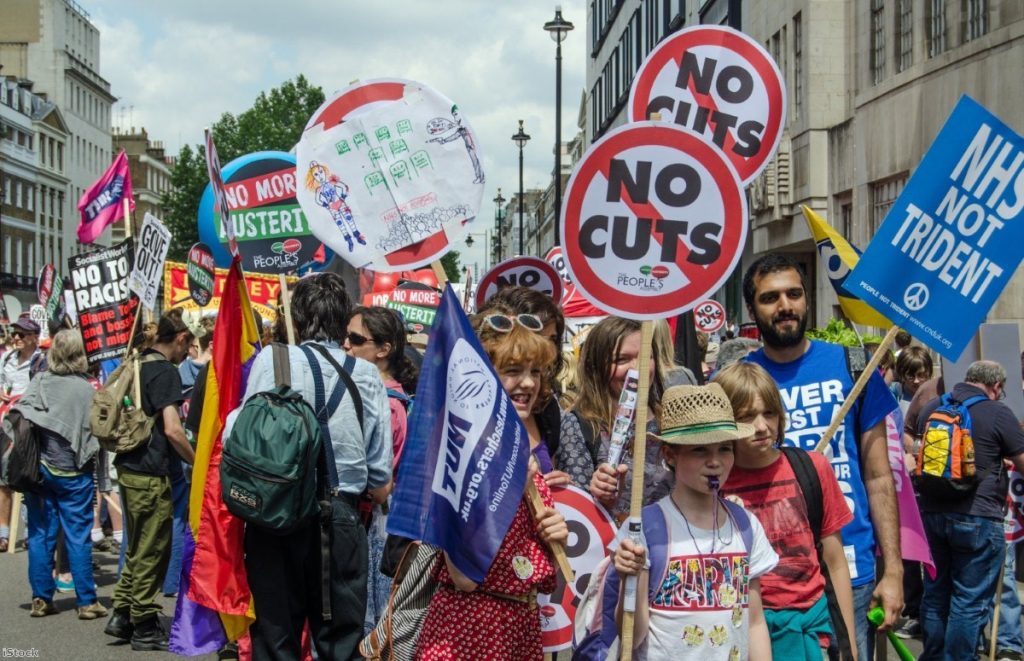By Natalie Bloomer
"In this Budget, everyone will be asked to contribute. But in return we make this commitment: Everyone will share in the rewards when we succeed. When we say that we are all in this together, we mean it."
These were the words of George Osborne as he announced his 2010 budget. Since then we've seen the creation of the bedroom tax which led to disabled people being dragged through the courts to fight for a few extra pounds each week, a child tax credit 'rape clause' which has forced 190 women to prove they were raped in order to get the money they are entitled to, the disastrous rollout of universal credit, cruel cuts to disability benefits, local authority budgets slashed and many more cuts and 'reforms' that we were told were unavoidable.
This might all seem like old news, but away from Brexit and all the headlines it generates, the impact of the Conservatives’ austerity measures are still being painfully felt across the country.


Just this week, an anonymous benefit claimant wrote: "My own circumstances now lack hope. This blow is hard to compute and becomes the fuel of recurring dreams. You're never quite able to fall asleep owing to a busy mind, trying to figure out the next step towards survival."
This person is far from alone. Several weeks ago I was asked by a claimant with mental health problems to attend their assessment for Employment Support Allowance (the disability benefit known as ESA). We arrived at the centre, which is in the same building as people taking their driving test, and waited in a small room with several other people all looking as anxious as David (not his real name) who I had come with.
Once inside the assessment room, a doctor began asking a long list of questions which, after an hour or so, moved on to the issue of suicidal thoughts. Below are the exact questions the claimant was asked:
"Do you have any specific thoughts of taking your life?"
"Have you ever attempted suicide?"
"You tried?"
"How long ago was that?"
"What stopped you?"
"Do you still have these thoughts, what do you think stops you from acting on them?"
Once the questions finished and the doctor ended the audio recording of it, she muttered quietly to David that she was sorry to have put him through it.
As we left the building, he turned to me and said: "It would be easier if they took me outside and shot me."
This is where we’re at as a country. People who already have so much more to deal with than most of us can imagine are being made to feel as if they have no hope because of their treatment by this government.
Eight years on from Osborne’s speech, it’s hard to imagine when "everyone will share in the rewards" as he promised. With the threat of a no-deal Brexit hanging over us, no end to austerity, and local authorities across the country facing a financial crisis – just look at Northamptonshire and East Sussex where councils have this week warned that services could be cut to the bare legal minimum – there is a real fear that things for those at the bottom could get a lot worse.
The truth is that we were never "all in it together". Those at the top might not have been quite so rich for a while, those in the middle might have had to tighten their belts, but for the most vulnerable people in our country, the government’s commitment to austerity has been devastating.
Natalie Bloomer is a freelance journalist. You can follow her on Twitter here.
The opinions in politics.co.uk's Comment and Analysis section are those of the author and are no reflection of the views of the website or its owners.












